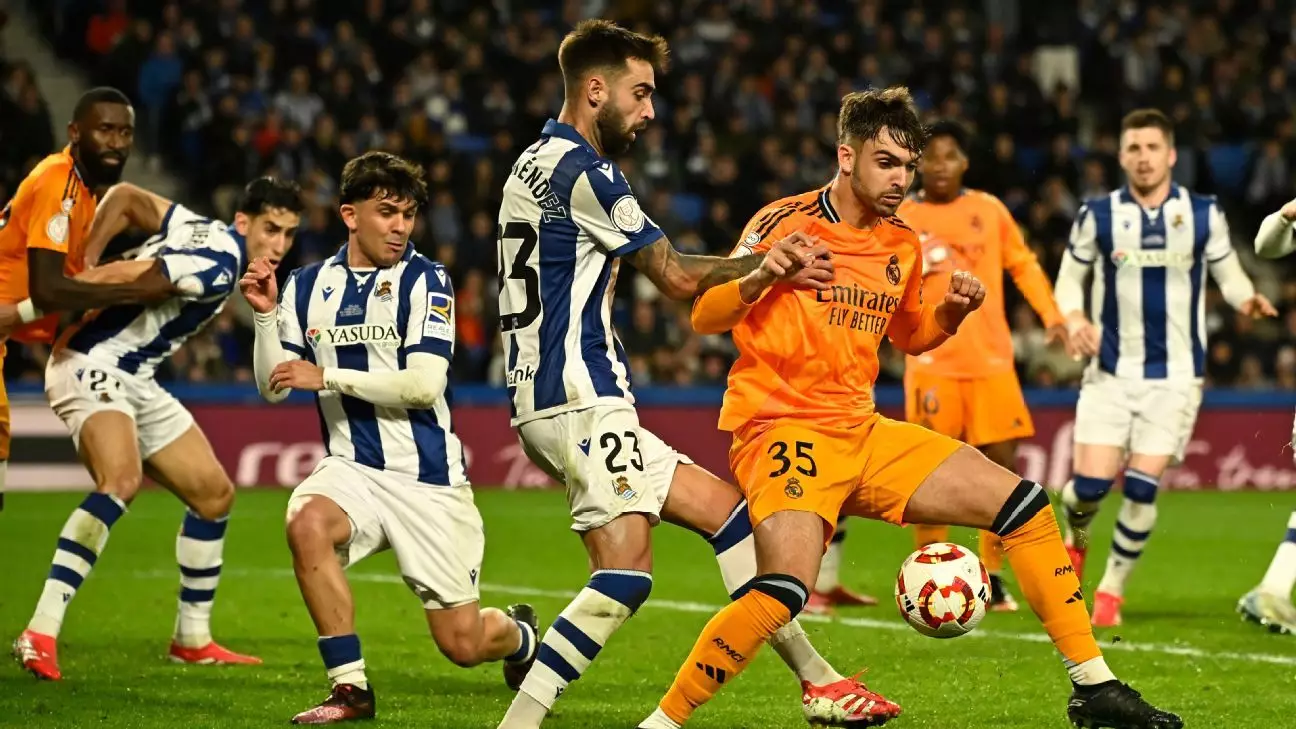In a troubling incident during the Copa del Rey semifinal, the match between Real Madrid and Real Sociedad was halted due to hateful chants directed at Madrid’s defender, Raúl Asencio. Just before halftime, the game was momentarily paused when Madrid’s captain, Vinícius Júnior, alerted the referee to the distressing situation. The atmosphere turned somber as the referee, José María Sánchez Martínez, initiated Spain’s anti-hate protocol, designed to combat racism and xenophobia in sports. This protocol involves broadcasting a message condemning such behavior, urging fans to maintain respect for all participants.
Despite the urgent measures taken, the incident raises profound questions about the persistent issues of racism and intolerance present in football culture. Fans directed chants of „Asencio, die,“ a remark inherently inflammatory and indicative of a mindset that permeates aspects of public life, particularly sports. Such environments must actively combat rather than perpetuate hate, reminding supporters of the respect owed to opponents and fellow players.
Background of Controversy Surrounding Asencio
The tension surrounding Asencio is intensified by troubling legal issues. Earlier this month, a court ruling in the Canary Islands confirmed an ongoing investigation into Asencio’s alleged involvement in distributing a sexually explicit video linked to minors. While the specifics of the case remain confidential, the allegations had already cast a shadow over Asencio’s professional life and his interactions on the field. Compounding this was his unique position; deployed out of his main position, Asencio faced not only opposition from adversaries but also emotional turmoil as a result of the crowd’s vitriol.
Having debuted with the first team amid a defensive crisis, Asencio has begun establishing himself as a reliable presence. However, the emotional toll of such incidents—not only on him but also on his teammates—cannot be understated. Coach Carlo Ancelotti recognized both the immediate impact of the crowd’s words and Asencio’s growing anxiety on the field, opting to substitute him at halftime. „Nobody likes to hear ‚die‘ sung at them,“ Ancelotti stated, emphasizing a fundamental aspect of athlete welfare amidst competitive pressures.
A Collective Call for Change
Equally concerning is the response from both teams‘ captains in the wake of these events. Mikel Oyarzabal of Real Sociedad condemned the chants, arguing that such behavior does not align with the spirit of the game. Oyarzabal pointed out the necessity of addressing issues through constructive discourse rather than hateful outbursts—an assertion echoed by Sociedad’s coach, Imanol Alguacil, who stressed the importance of maintaining a respectful environment in sports.
As society grapples with the ramifications of hate speech, football stands as a microcosm of broader cultural battles. The sport commands a passionate following, illustrating how deeply entrenched attitudes can seep into communal spaces like stadiums. The responsibility falls on players, coaches, clubs, and fans alike to ensure that stadiums remain venues of excitement and achievement rather than stages for hatred.
While the immediate concerns surrounding Raúl Asencio highlight pressing issues of racism and personal safety in sports, they should also serve as a rallying cry for transformative action within football. A commitment to promoting a respectful and inclusive environment will be pivotal in ensuring that the sport can remain not just a source of entertainment, but also a platform for unity and positive societal change.


Napsat komentář